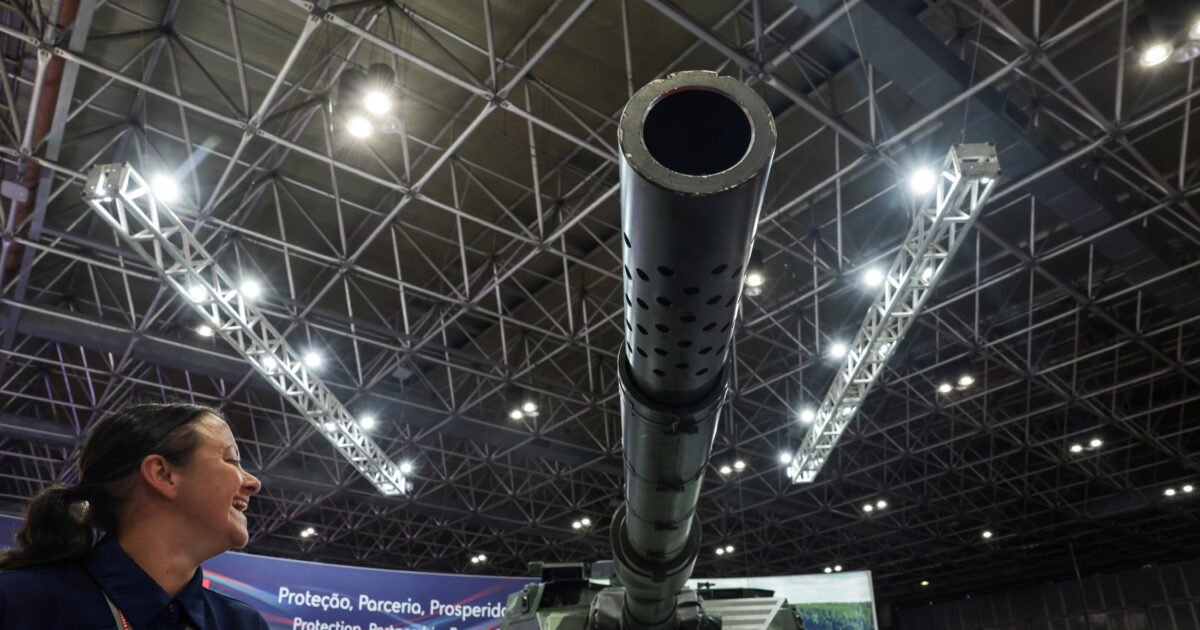The 32 members of NATO They gave a total of 1,303 trillion. dollars for defensive costs Last year, exceeding the forecasts, while 22 members achieved the goal of 2% of GDP, as the US intention to “withdraw” from the Eastern Borders of the European Union (EU) leads several Member States to “hit” the spending, catching the targets.
NATO figures show levels of defense spending records of $ 468 billion or 412 billion euros in Europe and Canada, 38% of which went to the market for significant equipment, while the US spent $ 818 billion or $ 720 billion.
According to NATO documents, last year, in 2023, NATO members had spent $ 200 billion or 176 billion euros less on defense, indicating a 19%increase.
A total of 22 countries also achieved the goal of spending 2% of GDP on defense. Initial estimates published at the beginning of the year had assumed that 23 would achieve the goal, but Montenegro did not succeed, while countries such as Belgium (1.29%), Italy (1.5%) and Spain (1.24%) that are traditionally in its last positions. Canada also loses the target (1.45%).
The “good -natured” are classified by the United Kingdom (2.33%), Germany (2.1%) and France (2.03%), and Greece remains a traditionally large consumer of defense systems, spending about 3%of GDP.
In what direction does the US push NATO, what does it mean for Greece?
As the new US government has known, the White House is pushing for the defensive costs to more than double from 2 to 5% of GDP, while processes between diplomats show a compromise target around 3% or 3.5%, with Swedish Prime Minister O. It is set at 3.5% with an addition of 1.5% for non -military sectors, such as operating costs, salaries, etc. In any case, the final decision will be taken at the Hague leaders’ summit at the end of June.
If the target finally approaches 5%, it means that Greece should roughly spend an additional 2% of its GDP in defense.
Recall that the prime minister announced an equipment program of 25-28 billion euros, but at a depth of 12 years.
Even more complicated is the situation in relation to EU budgetary rules, as final decisions on defense spending and the activation of the escape clause are still pending.
With the facts so far, based on the White Bible of the Commission, if a country activates the escape clause, it will be able to deviate from the agreed spending limits of up to 1.5% for 4 years over the increase in defense spending from 2021.
Greece’s defense spending in 2021 was € 5.5 billion, and this year they are expected to rise to € 6.6 billion.
Obstacles to Rearm Europe by the European Parliament
But the road to the giant cost of spending that the EU plans is not simple.
In a secret ballot on Wednesday (23.04.2025), the European Parliament’s Legal Affairs Committee voted in favor of supporting a legal opinion that rejects the Commission’s attempt to bypass parliament for a € 150 billion loan loan fund.
While the Commission has complete autonomy in choosing legal bases for its proposals, non -binding vote could cause a broader institutional conflict.
The plan proposed by the Commission in March includes loans of 150 billion euros for the joint supply of European construction defense equipment, which are funded in the framework of Safe Security Action (SAFE). To speed up the approval, the Commission cites Article 122 of the EU Treaty.
This article allows to bypass parliamentary negotiations and go straight to the Council for negotiation and approval, limiting the role of the European Parliament to a decorative, allowing it only to submit proposals and the request for discussion.
However, according to the Parliament’s Legal Service, Article 122 is the wrong tool for the job. The proposal, as it is, does not meet the limit for emergency powers and lacks a solid legal base, as stated in the legal opinion.
The vote could move a broader process, as it is now up to European Parliament President Roberta Metsola to decide on her next move, giving the power to escalate the matter, convening a debate in plenary, writing a formal letter to Ursoula von Der Dero.
For her part, Ursula von der Layen defends the rapid process, describing it as “the only possible solution”.
